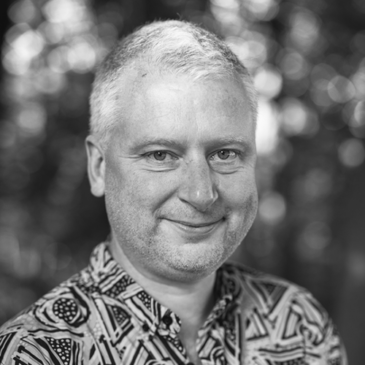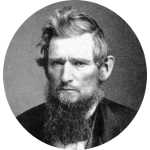David Shmoys is the Laibe/Acheson Professor of Business Management and Leadership Studies and is the Director of the Center for Data Science for Enterprise & Society at Cornell University. He obtained his Ph.D. in computer science from the University of California at Berkeley in 1984; before joining the Cornell faculty, he held postdoctoral positions at MSRI in Berkeley and Harvard University, as well as a faculty position at MIT. Professor Shmoys was the chair of the Provost’s “radical collaboration” task force on data science and associate director of the Institute of Computational Sustainability at Cornell University. His research has focused on the design and analysis of efficient algorithms for discrete optimization problems, with applications including scheduling, inventory theory, computational biology, and, most recently, computational sustainability. Professor Shmoys has been working on data-driven models in a broad cross-section of areas, including COVID-19 epidemiological modeling, congressional districting, and IoT network design.

Data Scienceand Decision Making Cornell Certificate Program
Request More Info
Overview
Data is the driving force behind the digital revolution, yet the challenge lies in refining that data to inform impactful decisions and address complex societal questions. This certificate program empowers you to navigate this critical process through data-driven strategies. You will discover how to use Python to transform questions into precise mathematical formulations and conduct computational analyses using powerful libraries.
By setting up optimization models and designing algorithms, you will gain the ability to compute optimal solutions for varied scenarios. This approach will provide new perspectives on addressing global challenges. As you apply these data-driven methods, you’ll generate actionable outcomes and recommendations applicable in real-time situations.
Upon completing this program, you will possess the skills to confidently leverage data for informed decision making, ready to make a significant impact in your field.
You’ll have six months to complete the required elements for this certificate program, but this flexible approach allows you to finish sooner based on your schedule.
Request more Info by completing the form below.
How It Works
- View slide #1
- View slide #2
- View slide #3
- View slide #4
- View slide #5
- View slide #6
- View slide #7
- View slide #8
- View slide #9
Faculty Authors
David Williamson is a Professor at Cornell University in the School of Operations Research and Information Engineering and is currently Chair of the Department of Information Science. He received his Ph.D. in Computer Science from MIT under Professor Michel X. Goemans in 1993. He was a Research Staff Member for IBM Research at the T.J. Watson Research Center in Yorktown Heights, New York from 1995 to 2000. From 2000 to 2003, he was the Senior Manager of the Computer Science Principles and Methodologies group at IBM’s Almaden Research Center in San Jose, California. He moved to Cornell University in 2004. His research focuses on finding efficient algorithms for hard discrete optimization problems, with a focus on approximation algorithms for problems in network design, facility location, and scheduling.
Frans Schalekamp received his Ph.D. in Operations Research from Cornell University in 2007. He has worked both in academia and in industry on three continents, in areas ranging from plant breeding and genetics to logistics. Former academic positions were at the Institute for Theoretical Computer Science at Tsinghua University in Beijing, China; the Department of Mathematics at the College of William & Mary in Williamsburg, VA; and the Computer Science Department at Cornell University. Professor Schalekamp held positions in industry as a research scientist at NatureSourceGenetics in Ithaca, NY, and as a senior analyst at CarMax in Richmond, VA.
Sam Gutekunst is the John D. and Catherine T. MacArthur Assistant Professor of Data Science at Bucknell University, with appointments in the departments of Computer Science and Mathematics. He received his Ph.D. in Operations Research from Cornell University in 2020, and his favorite part of his time as a Ph.D. student was teaching the Cornell version of this course. At Bucknell, Sam teaches courses in data science, algorithms, operations research, and combinatorics. His research is in data-driven decision-making and combinatorial optimization, and his application areas include detecting gerrymandering, predicting NFL scorigamis, and studying the data science and economics of Broadway. He has worked with undergraduates (many of whom were alumni of this course!) on research, consulting, and software development.

David Shmoys is the Laibe/Acheson Professor of Business Management and Leadership Studies and is the Director of the Center for Data Science for Enterprise & Society at Cornell University. He obtained his Ph.D. in computer science from the University of California at Berkeley in 1984; before joining the Cornell faculty, he held postdoctoral positions at MSRI in Berkeley and Harvard University, as well as a faculty position at MIT. Professor Shmoys was the chair of the Provost’s “radical collaboration” task force on data science and associate director of the Institute of Computational Sustainability at Cornell University. His research has focused on the design and analysis of efficient algorithms for discrete optimization problems, with applications including scheduling, inventory theory, computational biology, and, most recently, computational sustainability. Professor Shmoys has been working on data-driven models in a broad cross-section of areas, including COVID-19 epidemiological modeling, congressional districting, and IoT network design.

David Williamson is a Professor at Cornell University in the School of Operations Research and Information Engineering and is currently Chair of the Department of Information Science. He received his Ph.D. in Computer Science from MIT under Professor Michel X. Goemans in 1993. He was a Research Staff Member for IBM Research at the T.J. Watson Research Center in Yorktown Heights, New York from 1995 to 2000. From 2000 to 2003, he was the Senior Manager of the Computer Science Principles and Methodologies group at IBM’s Almaden Research Center in San Jose, California. He moved to Cornell University in 2004. His research focuses on finding efficient algorithms for hard discrete optimization problems, with a focus on approximation algorithms for problems in network design, facility location, and scheduling.

Frans Schalekamp received his Ph.D. in Operations Research from Cornell University in 2007. He has worked both in academia and in industry on three continents, in areas ranging from plant breeding and genetics to logistics. Former academic positions were at the Institute for Theoretical Computer Science at Tsinghua University in Beijing, China; the Department of Mathematics at the College of William & Mary in Williamsburg, VA; and the Computer Science Department at Cornell University. Professor Schalekamp held positions in industry as a research scientist at NatureSourceGenetics in Ithaca, NY, and as a senior analyst at CarMax in Richmond, VA.

Sam Gutekunst is the John D. and Catherine T. MacArthur Assistant Professor of Data Science at Bucknell University, with appointments in the departments of Computer Science and Mathematics. He received his Ph.D. in Operations Research from Cornell University in 2020, and his favorite part of his time as a Ph.D. student was teaching the Cornell version of this course. At Bucknell, Sam teaches courses in data science, algorithms, operations research, and combinatorics. His research is in data-driven decision-making and combinatorial optimization, and his application areas include detecting gerrymandering, predicting NFL scorigamis, and studying the data science and economics of Broadway. He has worked with undergraduates (many of whom were alumni of this course!) on research, consulting, and software development.
- View slide #1
- View slide #2
- View slide #3
- View slide #4
Key Course Takeaways
- Understand the breadth of quantitative decision-making situations that often arise in society
- Develop the skills needed for mathematical modeling of real-world decision-making situations, incorporating applications with data at scale
- Leverage fundamental algorithms used to solve such models and the basic mathematical techniques of validating the accuracy and efficiency of these solution methods
- Build familiarity with the current software used in the computational analysis of these models


What You'll Earn
- Data Science and Decision Making Certificate from Cornell Duffield College of Engineering
- 140 Professional Development Hours (14 CEUs)
Watch the Video
Who Should Enroll
- Entry-level to executive professionals looking to uncover insights from data
- Aspiring data professionals from non-STEM backgrounds
- Business decision makers
- Lifelong learners
- People interested in current trends of data modeling for decision making
- Summer and Winter Session extramural students

{Anytime, anywhere.}
Request Information Now by completing the form below.

$3,750
Data Science and Decision Making
| Select Payment Method | Cost |
|---|---|
| $3,750 |
